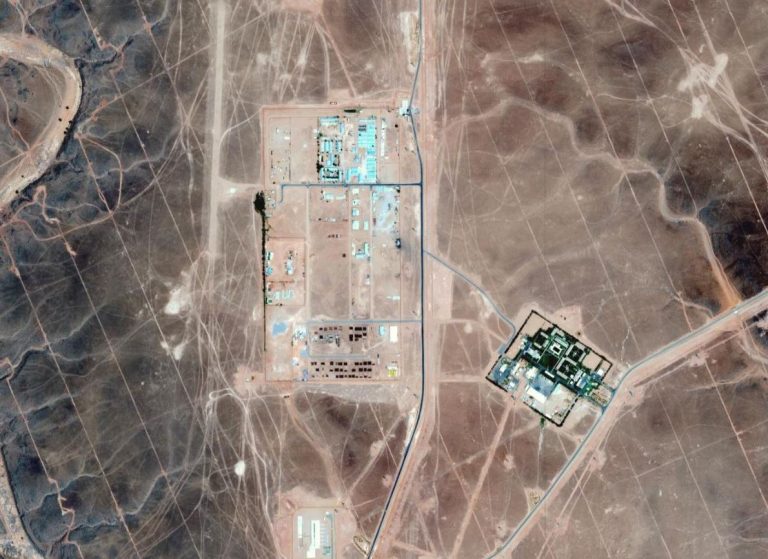At Qabas, we understand that accurate sales forecasting in Libya is essential for strategic planning and sustained growth. As Libya’s leading service provider in this field, we leverage our deep market insights and advanced analytical tools to deliver reliable predictions tailored to your business needs.
Our commitment to setting industry benchmarks drives us to continuously innovate and refine our forecasting methodologies. We pride ourselves on providing solutions that not only anticipate market trends but also empower our clients to make informed, data-driven decisions.
Partnering with Qabas means accessing expertise and excellence that aligns with your business objectives. Let us help you navigate the complexities of the Libyan market with confidence and precision.
Table of Contents

Importance Of Sales Forecasting In Libya
Accurate sales forecasting underpins the success of businesses operating in Libya’s dynamic market. We recognise its pivotal role in driving informed decision-making and sustainable growth.
Benefits For Local Businesses
Effective sales forecasting empowers Libyan businesses to allocate resources with precision. By anticipating demand, we enable companies to set realistic budgets and optimise inventory levels. This foresight enhances production planning, ensuring that goods and services meet market needs efficiently. Additionally, our forecasting tools support targeted marketing strategies, allowing businesses to allocate their marketing budgets where they yield the highest return.
Influence On Strategic Planning
Sales forecasting informs strategic planning by providing a clear projection of future revenues and market trends. We leverage advanced analytical models, such as ARIMA, to deliver reliable predictions that guide long-term business strategies. This data-driven approach enables businesses to navigate economic fluctuations and adapt to changes in the oil sector and other key industries. By integrating our forecasts into their strategic frameworks, companies can make proactive decisions that align with their growth objectives and market conditions.
Methods Of Sales Forecasting
At Qabas, we employ a range of sales forecasting methods to ensure precise and reliable projections for our clients in Libya.
Qualitative Techniques
Qualitative techniques rely on expert judgement and non-numerical data to predict future sales. In Libya’s emerging market, where historical data may be scarce, these methods are invaluable. We gather insights through expert opinion, consulting industry specialists and market analysts to identify emerging sales trends. Utilizing the Delphi method, we conduct multiple surveys among our experts to achieve a consensus forecast. Additionally, our market research services involve comprehensive surveys that capture consumer preferences and demand patterns, ensuring our forecasts reflect the current market dynamics.
Quantitative Techniques
Quantitative techniques use numerical data and statistical models to forecast sales accurately. We apply time series analysis to examine historical sales data, identifying patterns and trends that inform future projections. Regression analysis helps us understand the relationship between sales and various economic indicators, enhancing the precision of our forecasts. Our advanced analytical tools process large datasets efficiently, providing clear and actionable sales forecasts. By integrating these quantitative methods with our qualitative insights, we deliver robust and data-driven sales forecasts tailored to the Libyan market.

Challenges Faced In Libya
Economic Instability
Libya’s economy experiences significant fluctuations due to ongoing political unrest and conflict. Frequent changes in government disrupt economic policies, creating an unpredictable investment environment. This instability results in variable inflation rates, with annual inflation reaching up to 20% in recent years. Currency devaluation further complicates financial planning, as the Libyan dinar has seen a consistent decline against major currencies. Additionally, supply chains face regular disruptions, affecting the availability of goods and increasing operational costs for businesses.
Limited Access To Data
Accessing reliable data in Libya remains a major obstacle for accurate sales forecasting. Years of conflict have damaged infrastructure, leading to the deterioration of data collection systems. Industry reports and statistical databases are often outdated or incomplete, limiting the availability of current market insights. This scarcity of dependable information hampers the ability to identify trends and make informed predictions. Our team addresses these challenges by utilising alternative data sources and advanced analytical techniques to enhance the accuracy of our forecasts.
Tools And Technologies for Sales in Libya
We utilise advanced tools and technologies to enhance the accuracy and efficiency of our sales forecasting in Libya. Our approach integrates robust software solutions and sophisticated data analytics platforms to deliver reliable predictions.
Software Solutions
Our sales forecasting relies on sophisticated software solutions designed to handle complex data and generate precise forecasts. We implement ARIMA (AutoRegressive Integrated Moving Average) models, which have proven effective in the Libyan oil sector. For instance, the ARIMA (2,1,2) model accurately forecasts fuel oil sales by analysing historical sales data, ensuring our predictions are based on solid statistical foundations. Additionally, we use budgeting, planning, and forecasting software like CCH Tagetik, which integrates data across multiple departments. This software supports predictive analytics, driver-based planning, scenario analysis, and real-time simulations, enabling us to align departmental plans and performance data seamlessly.
Data Analytics Platforms
Our data analytics platforms are essential for transforming raw data into actionable insights. We leverage predictive analytics to identify trends and forecast future sales accurately. Real-time data processing allows us to simulate various scenarios, helping us anticipate market fluctuations and adjust our strategies promptly. Our platforms support detailed driver-based planning, which links key business drivers to sales outcomes, enhancing the precision of our forecasts. By integrating data from diverse sources, we ensure our forecasts are comprehensive and reflective of the current market dynamics in Libya.

Best Practices For Effective Forecasting of Sales in Libya
Effective sales forecasting in Libya hinges on implementing strategic best practices. We focus on precise data collection and continuous refinement to ensure reliable predictions.
Accurate Data Collection
Accurate and reliable data forms the cornerstone of our sales forecasting. In Libya, data scarcity due to prolonged conflict and infrastructure challenges necessitates robust collection methods. We achieve this by:
- Utilising a Unified CRM Platform: Our single CRM system ensures real-time data entry, minimising data loss and enhancing accuracy.
- Collaborating with Local Experts: Leveraging our in-depth knowledge of the Libyan market, we gather detailed insights to reflect current conditions accurately.
- Employing Advanced Analytical Tools: These tools process and validate data, ensuring our forecasts are based on solid and precise information.
By adhering to these practices, we maintain high standards in data accuracy, providing a reliable foundation for our sales forecasts.
Regular Review And Adjustment
Adapting to Libya’s dynamic market environment requires ongoing assessment and modification of our forecasts. We ensure this through:
- Quarterly Performance Evaluations: Regularly comparing forecasted sales against actual figures allows us to identify and address discrepancies promptly.
- Integrating New Market Data: We continuously incorporate the latest market information, ensuring our forecasts remain aligned with current trends and conditions.
- Refining Forecasting Models: Using predictive analytics, we adjust our models to anticipate and respond to market changes effectively.
This disciplined approach ensures our sales forecasts remain accurate and relevant, supporting informed decision-making and sustainable business growth.
Conclusion
Harnessing accurate sales forecasting transforms how we navigate Libya’s dynamic market. Our commitment to innovative methodologies and advanced analytics ensures that we provide reliable insights. By partnering with Qabas we empower local businesses to strategize effectively and drive sustainable growth. Together we can overcome challenges and seize opportunities in Libya’s evolving economic landscape.
Frequently Asked Questions
Why is sales forecasting important for businesses in Libya?
Sales forecasting is crucial in Libya’s volatile market as it enables businesses to allocate resources accurately, create realistic budgets, and enhance production planning. By anticipating future revenues and market trends, companies can make informed decisions, navigate economic fluctuations, and adapt to changes in key industries, ensuring sustainable growth and improved efficiency.
How does Qabas improve sales forecasting accuracy?
Qabas enhances forecasting accuracy by integrating both qualitative and quantitative techniques. They gather insights through expert opinions and comprehensive market surveys for qualitative data, and use statistical models like time series and regression analysis for quantitative data. This combined approach allows Qabas to deliver robust, data-driven forecasts tailored to the unique conditions of the Libyan market.
What technologies does Qabas use for sales forecasting?
Qabas employs advanced tools and technologies such as ARIMA models for precise forecasting in sectors like oil. They also use budgeting, planning, and forecasting software like CCH Tagetik to integrate data across departments. Additionally, data analytics platforms are utilised to transform raw data into actionable insights, supporting predictive analytics and real-time simulations for improved forecast accuracy and efficiency.
What challenges does Qabas face in Libya’s market?
Qabas faces challenges such as economic instability, including variable inflation rates and currency devaluation, which complicate financial planning. Additionally, ongoing political unrest and conflict have led to the deterioration of data collection systems, limiting access to reliable market insights. To overcome these obstacles, Qabas employs alternative data sources and advanced analytical techniques to maintain the accuracy of its sales forecasts.
How does Qabas address economic instability in Libya?
Qabas addresses economic instability by using advanced analytical techniques and alternative data sources to enhance forecast accuracy despite fluctuating economic conditions. By providing clear projections of future revenues and market trends, Qabas helps businesses navigate financial uncertainties, adapt to changes, and make informed strategic decisions to sustain growth in a volatile environment.
What best practices does Qabas follow for effective sales forecasting?
Qabas adheres to best practices such as precise data collection through a unified CRM platform and collaboration with local experts. They continuously refine forecasts by incorporating quarterly performance evaluations and new market data. Regular review and adjustment ensure that forecasts remain relevant and aligned with current trends, supporting informed decision-making and sustainable business growth.
How can local businesses benefit from Qabas’s sales forecasting services?
Local businesses can benefit from Qabas’s sales forecasting services through precise resource allocation, realistic budgeting, and enhanced production planning. Accurate forecasts enable businesses to meet market demands efficiently, anticipate market fluctuations, and adapt strategies accordingly. This leads to improved operational efficiency, informed strategic planning, and sustainable growth in Libya’s competitive market.
How does sales forecasting influence strategic planning?
Sales forecasting provides clear projections of future revenues and market trends, which are essential for strategic planning. By understanding potential market movements, businesses can allocate resources effectively, set realistic goals, and develop strategies to navigate economic fluctuations. This foresight enables companies to make proactive decisions, enhancing their ability to adapt and thrive in changing market conditions.
How can potential partners leverage Qabas’s expertise?
Potential partners can leverage Qabas’s expertise by collaborating to harness advanced sales forecasting methodologies tailored to the Libyan market. By utilising Qabas’s data-driven insights and innovative tools, partners can enhance their strategic planning, improve decision-making, and achieve sustainable growth. Qabas’s commitment to excellence and industry benchmarks provides a solid foundation for successful partnerships in navigating Libya’s complex business landscape.




